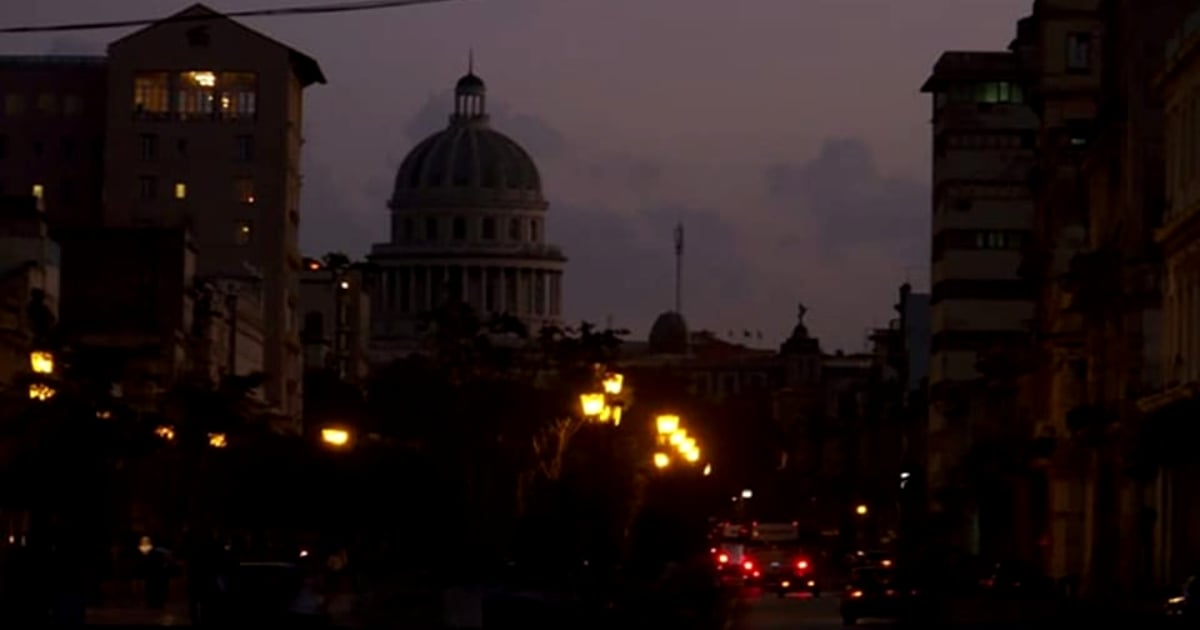
The collapse of the national electro-energy system (SEN) and the lack of fuel have been the triggers for a critical week for electricity generation in Cuba, which will begin this Sunday and will be accompanied by an increase in blackout schedules in Havana.
Perceived by Cubans as a privileged territory, the Cuban capital will see an increase in the duration and frequency of power outages, as reported on its social media this Saturday by the Electric Company of Havana.
The "programming of outages due to generation deficit in Havana from September 23 to 28, 2024" includes the four already established hours (from 10:00 to 14:00), which leave residents of block B4 without electricity on Mondays and Fridays, those of block B2 on Tuesdays and Saturdays, while residents of blocks B3 and B1 only experience one day of blackouts during this schedule (Wednesday and Thursday, respectively).
However, this Saturday, the Electric Company of Havana announced that "in light of emergency situations due to unexpected outages of generating plants," an additional 12 hours per week will be added to blocks B1 and B4, and eight hours to blocks B2 and B3, distributed as follows:
In total, the nearly two million Habaneros residing in these blocks will experience: 16 hours of blackouts per week for residents in blocks B1 and B2; 12 hours for those residing in block B3; and 20 hours for residents of block B4.
In early September, the Cuban regime washed its hands of the duration and frequency of blackouts by province and stated that these variables "are determined in each territory."
According to the Minister of Energy and Mines, Vicente de la O Levy, the "factors" that determine why provincial authorities establish blackout schedules in each territory are: the incidents of blackouts in water pumping, population concentrations and their levels of consumption, and the percentage distributions based on demand, among others.
Installed as one of the main topics in the conversation about the energy crisis in the country, comments on the unfair distribution of blackouts in Cuba and the supposed privileges of those in Havana abound on social media, especially on that of the Electric Union (UNE).
At the end of July 2022, amid another peak of worsening energy crisis in Cuba, the Havana government announced that it would schedule four-hour blackouts for the capital in "solidarity" with the rest of the country, whose population was suffering from power outages of up to 12 hours a day.
"In a gesture of solidarity with the country, Havana will schedule four-hour power cuts during the daytime (from 10 in the morning to 2 in the afternoon) in circuits of the city, with a frequency of every three days," informed the governor of the city, Reinaldo García Zapata, at an economic plenary in the Cuban capital.
In line with the "solidarity" approach, the then first secretary of the Communist Party in the Cuban capital, Luis Antonio Torres Iríbar, added that "this is the time to contribute so that the rest of Cuba has less suffering from the undesirable blackouts."
At the end of August this year, "solidarity blackouts" returned to Havana. On Facebook, the Electric Company of Havana announced that service in the capital would be affected due to an emergency, due to a generation deficit in the National Electric System.
The measure sparked a strong controversy on social media. While Havana was preparing to face two-hour power outages, many citizens from the provinces expressed their outrage, pointing out that these interruptions were not comparable to the long hours of blackouts they endured daily, and had been for several years.
What do you think?
SEE COMMENTS (1)Filed under: